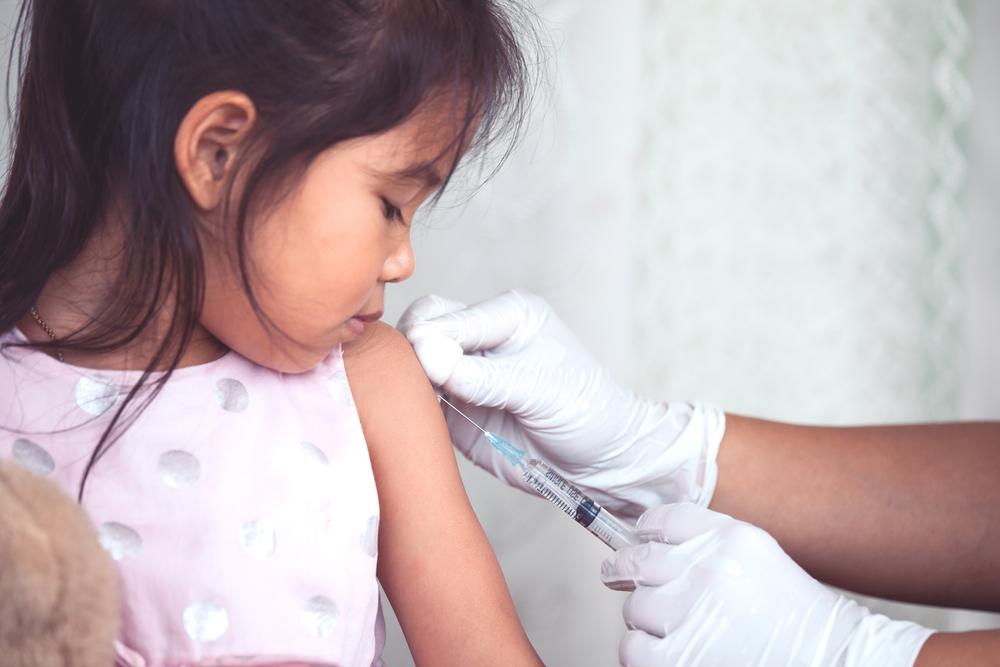 It’s that time again! No, not pumpkin spice latte season (but yes, also that) — we’re actually talking about flu season. Flu shot reminders are popping up everywhere right now, from pharmacies to the pediatrician’s office. And despite the annual recurrence of the season, the influenza virus itself is always evolving and changing, which means every flu season is different.
It’s that time again! No, not pumpkin spice latte season (but yes, also that) — we’re actually talking about flu season. Flu shot reminders are popping up everywhere right now, from pharmacies to the pediatrician’s office. And despite the annual recurrence of the season, the influenza virus itself is always evolving and changing, which means every flu season is different.
Shalika Katugaha, MD, system medical director of Infectious Diseases at Baptist Health, is here to tell us what to expect during the 2023–2024 flu season and what that can mean for both adults and children.
When is flu season?
In the U.S., flu season occurs annually throughout the autumn and winter months, with activity generally peaking between December and February — although it can also continue into late spring, lasting as late as May. The specific timing of the flu season’s peak can be challenging to predict and even varies throughout different parts of the U.S.
“Flu is among the deadliest vaccine-preventable diseases in the country,” says Dr. Katugaha. “Annual vaccination is recommended for everyone 6 months and older. Also, the Centers for Disease Control and Prevention (CDC) recommends getting a flu shot before peak season. Make plans to get it in September or October.”
Preliminary CDC estimates from last year’s flu season show that those who did receive a flu shot were about 40% to 70% less likely to be hospitalized due to illness or related flu complications.
How do the predictions work?
In order to make more reliable predictions about what we may experience here in the United States every year, disease experts look at flu activity in the southern hemisphere and in Australia.
“Australia had an earlier-than-usual spike in flu illness this year,” says Dr. Katugaha. “This means we may have an earlier flu season here, as well.”
Dr. Katugaha also explains that because many folks are returning to their pre-COVID-19 behaviors (more socializing, less masking), we’ll likely encounter the same or similar respiratory virus seasons and patterns we noticed amongst children and adults before the pandemic.
That being said, Dr. Katugaha also assures that there’s no evidence to suggest that the flu or respiratory virus season this year will be any worse than it was before the pandemic hit.
What are the flu shot recommendations?
Dr. Katugaha recommends getting both the flu vaccine and COVID-19 booster, and they can even be done during the same appointment. Children aged 6 months and older are eligible to receive both the flu vaccine and COVID-19 booster.
“One way to improve your outlook every year is to get the influenza vaccine,” she says. “Also, remember it’s safe to get both the flu vaccine and a COVID-19 booster at the same time.”
Because the flu virus changes annually, the composition of the vaccines is also updated every year. All vaccine versions in the U.S. are “quadrivalent,” which means they can protect against four different strains.
In flu seasons prior to this year, doctors recommended that anyone with extreme egg allergies be vaccinated in a medical setting. Beginning in the 2023–2024 season, these added safety measures are no longer suggested.
For high-risk adults who are aged 65 and older, the CDC recommends a special flu vaccine that’s higher than the standard dose. Studies suggest that, in this particular age group, high-dose vaccines could serve as more effective than the standard version.
While flu vaccination is recommended for all children and adults by the end of October every year, getting the flu shot after October can still provide protection during the season’s peak, reminds Dr. Katugaha.
“This year’s respiratory vaccine landscape is different and more hopeful than last year’s because of new vaccines and treatments, like the COVID-19 vaccine booster, the RSV vaccine for adults, and the RSV antibody injection for infants,” says Dr. Katugaha. “The bottom line: Let’s roll up our sleeves.”
Need a flu shot?
Flu shots are available at CVS, Publix, Walgreens, and other retail locations — learn more at Get a Vaccine #FluVaxJax. Your primary care physician or your family’s pediatrician may also be offering the flu vaccine, just be sure to contact the office first to ensure adequate supply.
















